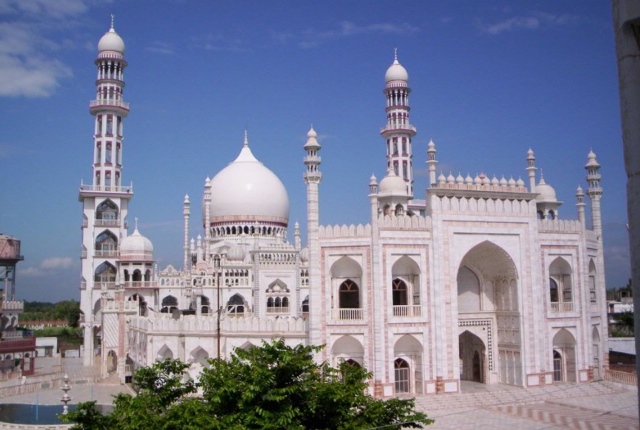In a recent interview with USA’s National Public Radio (NPR), Maulana Syed Arshad Madani, the 80-year-old principal of the Darul Uloom seminary in Deoband, Uttar Pradesh, said if the Indian government asked him to, he was willing to go to Afghanistan to urge the Taliban, which has taken over the governance of that country, to be “peaceful and just”. But just what is the connection between an octogenarian head of a seminary in a small U.P. town and the Taliban?
Lots, if history has to be considered. Deoband is where the Taliban’s ideology originates. This little town, a little less than 170 kilometres north of New Delhi is where more than 150 years ago the seminary that Madani heads today was founded by Muslim scholars. India was then under British rule–the British monarchy had just taken control of India from the East India Company–and the previous regime of Mughal rulers had been defeated. The seminary’s mission was to educate Indian Muslims about the core principles of Islam and how that would help resist the British.
This was at the core of movement known as Deobandi Islam. Later, during the freedom movement in India many followers of Deobandi principles coalesced with the freedom struggle in India. Much later, after Independence, followers of the original seminary in Deoband set up what might be called branches in other parts of South Asia, including what is today the Pakistan-Afghanistan border. It is at those locations where those adhering to the Taliban were educated. In fact, the late Mullah Mohammad Omar, who founded the Taliban, was educated at the Jamia Uloom ul-Islamia, an Islamic university in Karachi that follows the Darul Uloom system of the original Deoband seminary.
Although members of the Taliban consider themselves as Deobandis who believe in Islam in its purest form, the original Deobandis in India do not like to associate themselves with the notoriety that the Taliban has earned for itself. But, in his interview with NPR, Madani drew a parallel with what the Taliban stood for and the original objectives of the Deobandi movement. The way the Deobandis helped in resisting and kicking out the British during India’s freedom struggle was similar to what the Taliban was doing in Afghanistan, he said, in an obvious reference to the Taliban resistance against first the Russians and then, more recently,the Americans.
But while the Taliban is also influenced by Saudi Arabia’s Wahhabi culture, an ultra-conservative form of Islam, India’s Deobandis have co-existed fairly peacefully within a pluralistic society. At least until now. Since 2014 when a BJP-led right-leaning nationalist regime came to power, India’s Muslims, including Deobandis have been at the receiving end of discrimination and hostility. At the seminary in Deoband, the education programme (it is typically an eight-year course) involves the life and teachings of Prophet Mohammad, the Koran, and the Arabic language. And while Wahhabi fundamentalism is not prevalent in the teachings, there are elements of puristic Islamism that are common to Deobandis and the Wahhabi movement. One of them is the attitude towards women. For instance, the seminary is a male-only preserve; female students are not admitted.
In recent years, the seminary in Deoband has faced opposition, particularly from Hindu nationalist militant organisations, which are of the opinion that it should be shut down. A few weeks ago, the Uttar Pradesh government, which is led by the BJP, said that it would set up a training centre for Anti-Terrorist Squad (ATS) commandos in Deoband. And a senior state leader from the BJP alluded to the Taliban’s “brutality” as one of the reasons for setting up the ATS.
